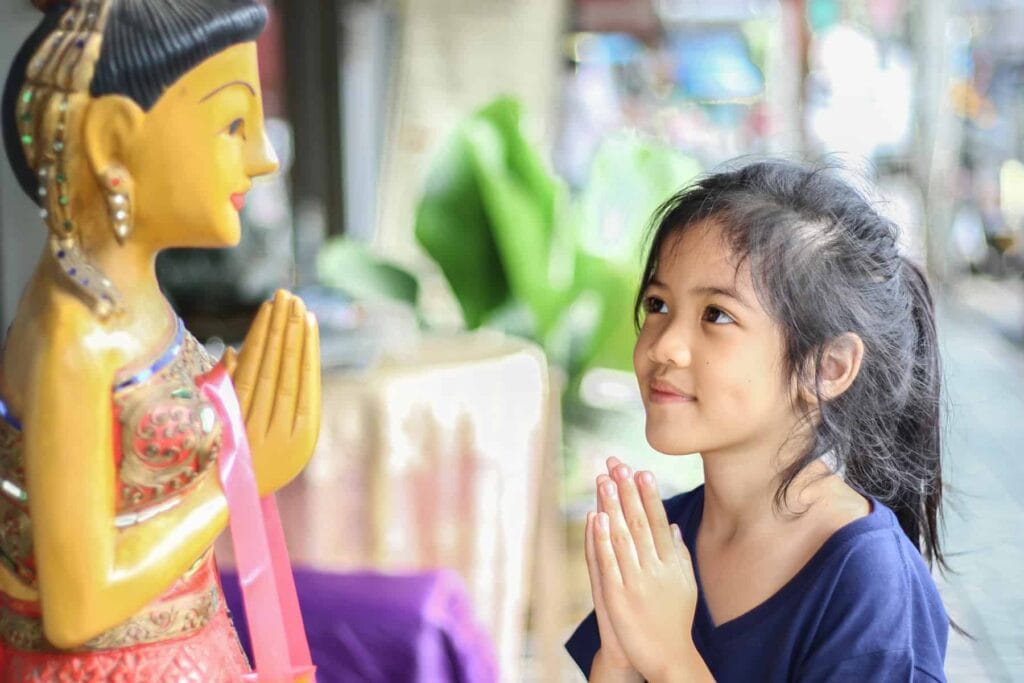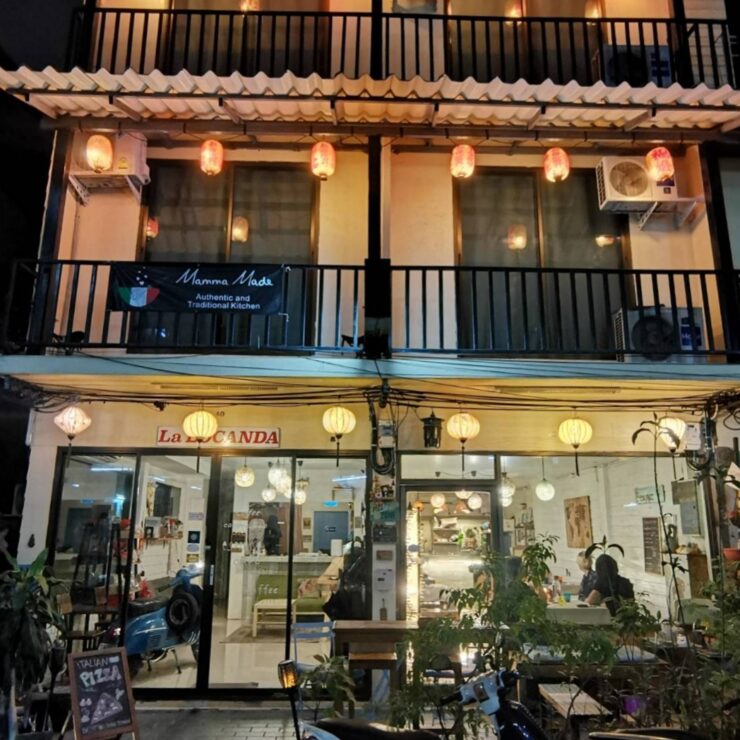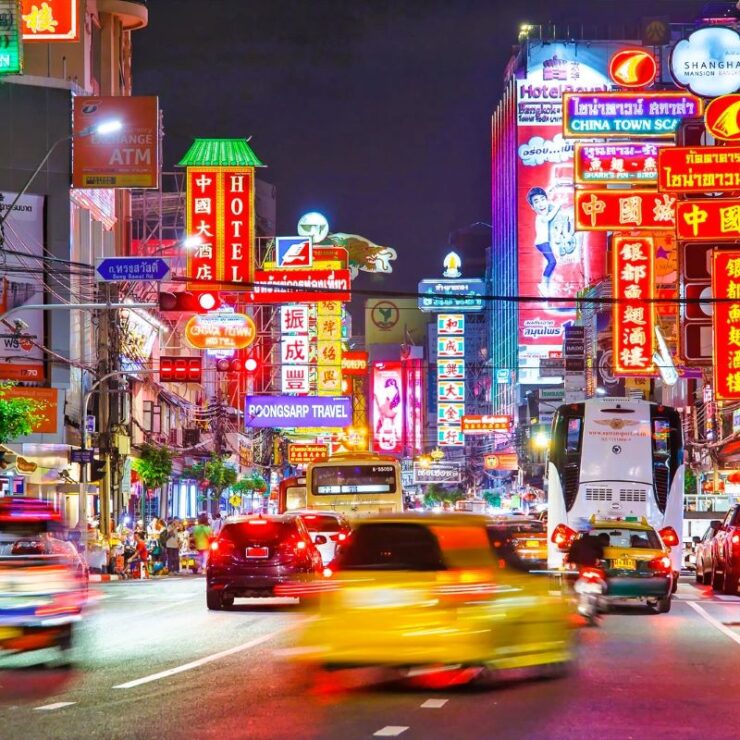Thailand, often referred to as the “Land of Smiles,” is one of the most popular travel destinations in the world. Known for its stunning beaches, rich history, and vibrant street food culture, Thailand also boasts a deeply rooted cultural heritage that is shaped by its traditions, religion, and social norms. For travelers, understanding Thai culture is essential to appreciating the country’s charm and showing respect to its people. This guide will help you navigate the customs and traditions of Thailand, ensuring a smooth and enriching experience.

1. The Importance of Respect in Thai Society
Respect is a cornerstone of Thai culture, and it manifests in various aspects of daily life. Thais are generally polite, gentle, and non-confrontational, placing great emphasis on harmonious interactions. As a traveler, showing respect will go a long way in fostering positive relationships and leaving a good impression.
Key Points to Remember:
- The Wai Gesture: The traditional Thai greeting, known as the wai, involves placing your palms together in a prayer-like position and bowing slightly. It is a sign of respect and is often used when greeting someone, saying goodbye, or expressing gratitude. While not mandatory for tourists, returning a wai is considered polite.
- Respect for Elders: Age and seniority are highly valued in Thai society. Addressing elders with respect and deferring to their opinions is customary.
- Avoiding Confrontation: Thais avoid open conflict and value maintaining a calm demeanor. Losing your temper or raising your voice is considered rude and disrespectful.
2. Religion: The Role of Buddhism in Thai Life
Buddhism is the dominant religion in Thailand, with over 90% of the population identifying as Theravada Buddhists. It plays a significant role in shaping the country’s values, traditions, and daily practices.
Do’s and Don’ts When Visiting Temples:
- Dress Modestly: When visiting temples (wats), ensure your shoulders and knees are covered. Avoid wearing revealing clothing as it is considered disrespectful.
- Remove Your Shoes: Always take off your shoes before entering temple premises or someone’s home.
- Refrain from Pointing Your Feet: In Thai culture, the feet are considered the lowest and dirtiest part of the body. Avoid pointing your feet at Buddha images, monks, or other people.
- Respect Buddha Images: Buddha statues and images are sacred in Thailand. Do not climb on them, touch them unnecessarily, or use them as props for photos.
3. The Concept of “Sanuk”
Thais embrace the idea of sanuk, which translates to “fun” or “enjoyment.” This philosophy encourages people to find joy and lightheartedness in everyday activities. Whether it’s sharing a meal, attending a festival, or engaging in conversation, sanuk is an integral part of Thai life.
How to Embrace “Sanuk” as a Traveler:
- Participate in local festivals, such as Songkran (Thai New Year) or Loy Krathong (Festival of Lights).
- Try new activities, like Thai cooking classes or Muay Thai lessons.
- Engage with locals in a friendly and open-minded manner.
4. Thai Food Culture: More Than Just a Meal
Thai cuisine is world-renowned for its bold flavors, fresh ingredients, and balance of sweet, sour, salty, and spicy tastes. Food is an integral part of Thai culture, often bringing people together for shared experiences.
Dining Etiquette:
- Sharing is Caring: Thai meals are often served family-style, with multiple dishes shared among the group. It’s polite to try a little of everything.
- Use a Spoon and Fork: Thais typically eat with a spoon and fork, using the spoon to bring food to the mouth and the fork to push food onto the spoon. Chopsticks are only used for noodle dishes.
- Don’t Waste Food: Leaving food on your plate is considered wasteful and disrespectful, especially rice, which is seen as sacred.
5. Dress Code: Modesty Matters
While Thailand is a tropical country with a relaxed vibe, modesty in dress is still important, especially when visiting temples, rural areas, or government buildings.
What to Wear:
- In urban areas and tourist hotspots, casual wear is acceptable, but avoid overly revealing clothing.
- When visiting temples or religious sites, wear clothing that covers your shoulders and knees.
- On beaches, swimwear is appropriate, but avoid walking around in bikinis or shirtless in public areas outside the beach.
6. Social Norms and Taboos
Understanding Thai social norms and avoiding cultural taboos will help you navigate interactions with locals respectfully.
Things to Avoid:
- Touching Someone’s Head: The head is considered the most sacred part of the body, so avoid touching anyone’s head, even in a friendly manner.
- Public Displays of Affection: Thais are generally conservative when it comes to physical affection in public. Handholding is acceptable, but kissing or hugging in public is frowned upon.
- Pointing with Your Finger: Pointing directly at people or objects is considered impolite. Instead, use your whole hand or nod your head in the direction you’re referring to.
- Criticizing the Monarchy: The Thai royal family is deeply revered, and any criticism or disrespect toward them is not only offensive but also illegal under strict lèse-majesté laws.
7. Festivals and Celebrations
Thailand is home to many vibrant festivals that reflect its unique cultural heritage. Participating in these events is a great way to immerse yourself in Thai traditions.
Popular Festivals:
- Songkran (Thai New Year): Celebrated in April, this water festival involves playful water fights and traditional ceremonies to honor elders.
- Loy Krathong: Held in November, this festival sees locals releasing beautifully decorated floating baskets (krathongs) onto rivers and lakes to pay respect to the water spirits.
- Yi Peng Lantern Festival: In northern Thailand, lanterns are released into the sky to symbolize letting go of misfortunes.
8. Language and Communication
While many Thais speak basic English, especially in tourist areas, learning a few Thai phrases can greatly enhance your experience and show respect for the local culture.
Useful Phrases:
- Hello: Sawadee ka (for women) / Sawadee krap (for men)
- Thank you: Khop khun ka / Khop khun krap
- Excuse me / Sorry: Khor toht
- How much?: Tao rai?
- Delicious: Aroi mak
9. Transportation Etiquette
Thailand’s transportation options range from tuk-tuks and motorbike taxis to modern BTS Skytrains and buses. While navigating the country, keep these tips in mind:
- Negotiate Fares: When using tuk-tuks or taxis without meters, agree on the fare before starting your journey.
- Respect Personal Space: Public transportation can get crowded, so be mindful of others and avoid loud conversations.
- Offer Seats to Elders: Giving up your seat to elderly passengers is a sign of respect.
10. Tipping and Money Matters
Tipping is not mandatory in Thailand but is appreciated in certain situations, such as at restaurants, for hotel staff, or after a massage.
- Restaurants: Leave a small tip (10-20 baht) if service was good.
- Taxis: Rounding up the fare is common practice.
- Street Vendors: Tipping is not expected for street food or market purchases.
Final Thoughts
Thailand’s rich culture, warm hospitality, and timeless traditions make it a truly special destination. By taking the time to understand and respect Thai customs, you’ll not only enrich your travel experience but also foster meaningful connections with the locals. Remember, a little effort goes a long way in showing appreciation for the culture and people of this beautiful country.
So pack your bags, brush up on your wai, and get ready to explore the wonders of Thailand with an open heart and mind!





